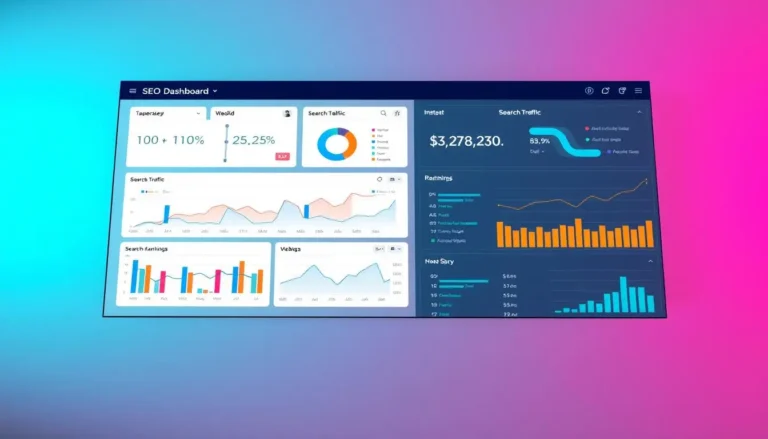How to Find Your Competitors’ Best Keywords

Ever wondered how to beat your competitors in search engine rankings? By doing competitor keyword research, you can find out what keywords they’re using. This lets you see what they’re doing right and what they’re missing. You can use tools to find and analyze these keywords.
Knowing what keywords your rivals are after can open up new chances for you. It helps you improve your own strategy and might even let you rank higher than them. In this guide, I’ll show you how to find and analyze your competitors’ top keywords. We’ll use tools like SEMRush, Ahrefs, and Moz Open Site Explorer.

First, understand why finding your competitors’ keywords is key. It helps you make better content and boost your SEO. With the right tools, you can uncover your competitors’ strategies and create a plan to beat them.
Understanding the Importance of Competitor Keyword Research
Knowing what keywords your competitors use is key to SEO success. By doing a deep dive into their keyword strategies, I can find out what terms bring them traffic. This involves using special software to spot top keywords that might have slipped by.

Why Competitor Keywords Matter
Studying your competitors’ keywords shows me what terms they aim for. This tells me about market trends and what people want. It helps me find chances to get more visitors by improving my strategy.
Benefits of Understanding Your Competition’s Strategy
Looking at how competitors use SEO can be very helpful. It shows me what they do well and what they don’t. This lets me make better content that stands out. It also helps me find new keywords to target, making my site more relevant and trusted.
Setting Realistic Research Goals
It’s important to set goals that are reachable in keyword research. I aim for keywords with the right amount of search volume and competition. This way, I can focus on terms that can really help my site rank better, bringing in more visitors and sales.
Essential Tools for Finding Competitor Keywords
To find competitor keywords, you need the right tools. These platforms make competitive keyword research easy. They help you find valuable insights.
Google Keyword Planner is a good starting point. It shows search volume, competition, and cost per click. This helps you find competitor keywords quickly.
SEMRush has great features for competitor keyword strategy. Its Organic Competitors report shows how competitors rank for keywords. It helps you find ways to improve your strategy.
Screaming Frog Spider crawls websites. It lets you analyze competitor keywords in their site structure and content.
BuzzSumo is great for content analysis. It shows which topics and keywords get the most social shares and engagement. This helps you discover competitor keywords.
SpyFu gives you deep domain data. It lets you explore competitor keyword strategies locally and globally. Its reports show which keywords bring the most traffic to competitors.
Ahrefs offers advanced tools for keyword analysis. It helps you understand keyword difficulty and search volume. This ensures you focus on the best keywords for your strategy.

Choosing the right tools depends on your needs and budget. Whether you use free tools like Google Keyword Planner or premium tools like SEMRush and Ahrefs, they are key for a good competitor keyword strategy.
Manual Methods to Find Competitor Keywords
While automated tools are great, manual methods give unique insights. They help you find keyword opportunities that tools might miss. This way, you can get a closer look at your competitors’ strategies.
Analyzing Competitor Website Content
Begin by checking your competitors’ website content. Look at product descriptions, landing pages, and blog posts. Find out which terms and phrases they use often. This helps you see what topics they focus on, which is key for tracking their keywords.
Examining Meta Titles and Descriptions
Meta titles and descriptions are important for SEO. By looking at these on competitor sites, you can see their top keywords. This gives you a clear view of their SEO strategy and how they organize their content.
Reviewing Competitor Blog Topics
Competitor blog topics show their keyword strategy. By analyzing what they write about, you can find new keyword ideas. This manual check adds depth to your understanding of their content strategy.
Using Google’s Free Tools for Competitive Analysis
Google’s free tools are a game-changer for competitive keyword analysis. They offer valuable insights without costing a dime.
Google Keyword Planner is a standout for finding keywords your competitors use. Just enter a competitor’s URL to get a list of their targeted keywords. It shows you which keywords are popular and how competitive they are.
Google Search Console is also a must-have. It tracks how your website ranks in search engines. You can see which keywords bring in the most traffic. This info is key to beating your competitors.
Google Trends adds another layer by showing keyword trends over time. It helps you spot new topics and adjust your strategy. With these tools, you can make sure your content matches what people are searching for.
| Tool | Primary Use | Key Features |
|---|---|---|
| Google Keyword Planner | Top Competitor Keyword Finder | Keyword discovery, competition analysis, bid estimates |
| Google Search Console | Search Engine Ranking Tools | Performance monitoring, indexing status, keyword performance |
| Google Trends | Keyword Analysis Tools | Trend analysis, seasonal peaks, regional interest |
Advanced Tools for Competitor Keyword Analysis
To improve your keyword research, using advanced tools is key. These tools give you deep insights into your competitors’ strategies. This helps you stay ahead in SEO.
SEMrush Features and Capabilities
SEMrush is a top competitor analysis tool. Its Domain vs. Domain feature lets you compare your keywords with competitors. It shows gaps and opportunities.
SEMrush also tracks backlinks and SERP rankings. This keeps you updated on your competitors’ moves.
Ahrefs Competitor Analysis Tools
Ahrefs has a great keyword research tool. It finds top organic keywords and estimates competitor traffic. The Content Gap analysis is a standout feature.
It shows keywords competitors rank for but you don’t. This helps you target valuable keywords.
Moz Pro Keyword Explorer
Moz Pro has a strong keyword research tool. It helps you find the best keywords for your niche. Its Keyword Explorer analyzes search volume and difficulty.
| Tool | Pricing Plans | Key Features |
|---|---|---|
| SEMrush | $139.95/month (Pro) to $499.95/month (Business) | Organic Research, Keyword Gap, Backlink Analytics |
| Ahrefs | Starting at $99/month | Site Explorer, Content Gap, Top Organic Keywords |
| Moz Pro | Various plans available | Keyword Explorer, Link Analysis, Rank Tracking |
How to Analyze and Prioritize Discovered Keywords
After finding out what keywords your competitors use, it’s time to sort them out. This makes sure your SEO plan focuses on the best keywords for your business.
Evaluating Keyword Difficulty
Checking how hard it is to rank for a keyword is key. Tools like Ahrefs or SEMrush help figure out if you can rank for each keyword. This is important when you’re looking at your competitors’ keywords, so you aim for achievable goals.
Assessing Search Volume
Knowing how often people search for a keyword tells you its traffic potential. Keywords with lots of searches can bring a lot of visitors, but they’re also more competitive. I look for keywords with high search volumes that are worth the competition.
Determining Commercial Intent
Figuring out what people want from a keyword helps target the right ones. Tools like Seobility or Google Ads Auction Insights help see if a keyword is for finding information, buying something, or navigating. Keywords that lead to buying or finding information are usually better for my business.
- Relevance to your products or services
- Keyword difficulty score
- Monthly search volume
- Commercial intent level
By weighing these factors, I make a list of keywords that boost my SEO and make my site more visible.
Creating Your Competitor Keyword Strategy
Now that you know your keyword research competitors, it’s time to make a plan. I use a competitor keyword tool to get a list of their best keywords.
Looking for chances means finding keywords your rivals haven’t used. This way, you can reach more people and target specific groups.
Adding these keywords to your SEO plan needs a smart mix. I make sure they fit my brand and keep my content consistent.
Writing content for these keywords means making articles and blog posts that are both useful and fun. This helps you rank better in search engines and draw in more visitors.
Keeping an eye on how these keywords do is key. I check their performance often to tweak my strategy. Also, finding gaps in what your competitors offer lets you shine in search results and meet needs they can’t.
Common Mistakes to Avoid in Competitor Keyword Research
When you do competitive keyword research, it’s easy to make mistakes. These mistakes can mess up your strategy. To avoid them, make sure your keyword comparison is effective and meets your goals.
One big mistake is copying competitor keywords without checking if they fit. It’s important to find out what your competitors are using. But, using their keywords without seeing if they match your audience’s needs can be a problem.
Ignoring Long-Tail Keywords
Just looking at high-volume keywords can be a mistake. Long-tail keywords have less competition and can bring in more targeted traffic. They also match user intent better, which is good for your content and rankings.
Overlooking Search Intent
It’s key to know why people are searching for something. If you ignore this, you might attract visitors who aren’t ready to buy or engage. Make sure your content meets the needs of your users. This improves their experience and helps your rankings.
Implementing Your Findings Effectively
After finishing my SEO competitor research, it’s time to act on what I’ve learned. Knowing how competitors optimize their content helps me improve my own strategy.
One good way to use competitor keyword research is to create new content. I focus on the keywords my competitors use. This way, my content meets the needs of my industry.
Improving my existing content is also key. Using competitor keyword analysis, I make my pages more appealing to search engines. This not only helps my rankings but also fills any content gaps.
- Create content targeting discovered keywords
- Optimize existing pages with competitor keywords
- Monitor performance to adjust strategies as needed
Keeping an eye on how my content does is important. Regular checks help me see if my SEO is working. By using what I’ve learned from competitors, I can keep my online presence strong.
Tracking and Measuring Your Progress
It’s key to watch how your SEO keyword strategy is doing. By tracking your keyword rankings and performance, you can make smart choices to boost your analysis of competitors.
Setting Up Keyword Position Monitoring
First, use tools like Mangools or AccuRanker to monitor your keyword positions. These tools show where your keywords rank on search engine results pages (SERPs) and track changes. They also offer automated reports for quick updates on your competitor research.
Analyzing Performance Metrics
Then, look at important metrics like organic traffic, click-through rates, and conversions. Knowing these metrics helps you spot where your strategy can get better compared to your rivals.
Adjusting Your Strategy
Lastly, tweak your strategy based on what you learn. If some keywords aren’t doing well, think about improving your content or finding new keywords. Keeping up with competitor analysis keeps your SEO strategy sharp and ready for market shifts.
| Tool | Features | Pricing |
|---|---|---|
| Mangools | Keyword position monitoring, keyword gap analysis, competitor domains tracking | Basic: $29/month, Premium: $49/month, Agency: $79/month |
| SpyFu | Competitor keyword research, PPC analysis, SEO ranking tools | Basic: $39/month, Professional: $79/month, Team: $299/month |
| AccuRanker | Real-time rank tracking, competitor analysis, customizable reports | Starter: $109/month, Pro: $239/month, Enterprise: Custom pricing |
Conclusion: Mastering Competitor Keyword Research
In this guide, we looked at the key parts of competitor keyword research and its role in SEO. Knowing your rivals’ keyword plans is key to a good SEO strategy. Tools like SEMrush and Ahrefs help me see how they rank and find chances for me.
By carefully looking at keywords, I found areas where my site could do better in search results. For example, Ahrefs showed me 72 keywords a local coffee roaster’s rivals rank for, but the roaster doesn’t. This info is super helpful for making my keyword plan better.
Using the right SEO tools lets me keep an eye on my keyword plans and make changes as needed. By watching how keywords do and keeping up with trends with Google Trends, I stay ahead of the game.
To keep winning, I focus on keywords that are doable, have good search volume, and match what people are looking for. Not missing out on long-tail keywords helps my SEO be sharp and effective. Since organic search is a top way for people to find new brands, getting good at competitor keyword research helps my site get more visitors.
Overall, finding out what your competitors are doing with keywords is a job that keeps going. With the right tools and plans, I can find great keywords, improve my SEO, and get more people to visit my site.







